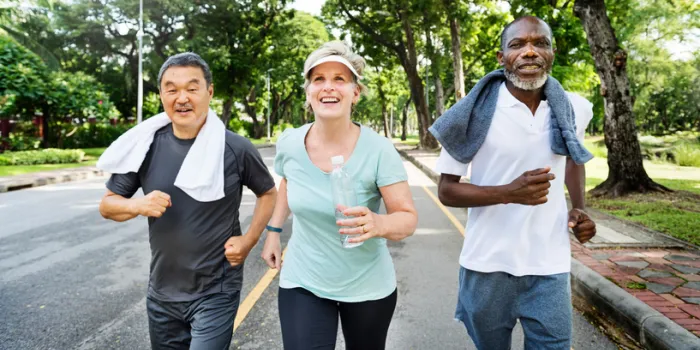We’ve all heard about the physical benefits of exercise. Among them: Staying active can decrease the risk of cardiovascular disease and stroke and keep us at a healthy weight, which means less joint pain and fewer of the risks of obesity, including cancer and diabetes.
But did you know that exercise also has a host of mental health benefits? Here are just a few:
Exercise can alleviate the symptoms of depression and anxiety.
A study whose results were published online in the American Journal of Psychiatry determined that depression could be prevented if people engaged in as little as one hour of physical activity each week. Researchers found, however, that any type of workout of any duration had mental health benefits.
Another study, published in the Journal of Clinical Psychiatry, found that cardiovascular exercise can reduce both anxiety and depression. Researchers suggest the benefit may come from increased blood flow to the brain. Exercise also affects the hypothalamic-pituitary-adrenal axis, which in turn influences bodily systems that control mood, stress response and even memory.
It doesn’t seem to matter too much what kind of exercise you prefer. Aerobic exercises like running and cycling have been shown to help. But a study published in Front Psychiatry found that meditative movement—exercises such as qi gong and tai chi that combine movement with meditative attention—may be just as effective as regular higher-intensity exercise or other interventions in reducing anxiety and depression.
Exercise can improve your self-esteem.
Exercise can help you lose weight, which may make you feel better about yourself. But evidence suggests that the very act of exercising, no matter the outcome, can boost your self-esteem. In a study by the University of Essex, published in the journal Environmental Science & Technology, 90 percent of respondents reported that an outdoors “green walk” increased their self-esteem. Participants also reported lower levels of tension, depression and fatigue following outdoors exercise.
Exercise can help keep you mentally sharp.
A study published in the Journal of Alzheimer’s Disease showed that individuals with mild cognitive impairment, a risk factor for dementia, showed increased functional brain connectivity after participating in a 12-week moderate-intensity exercise program.
Another study, published in the British Journal of Sports Medicine, found that aerobic exercise improved spatial memory and hippocampal volume in older women. A previous study by the same researchers showed similar benefits for women who engaged in resistance training.

